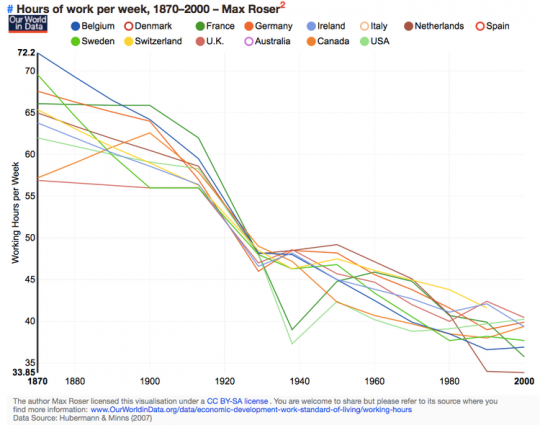For most of human history, the average person spent much of their day trying to produce enough food to survive. Even in the mid-1800s 90 percent of Americans were farmers.
But that was soon to change, and by the 1870 census farmers dropped to a minority at 47.7 percent of all employed persons.
In that same year the average person spent 62 percent of their waking hours—70 hours a week—working. But over the next 150 years the number of working hours dropped considerably. Because of productivity gains and innovation, the average person in Western countries now works fewer than 40 hours a week.
That means we now have an extra 1,800 minutes more free time every week than did our nineteenth century ancestors. So how are we spending those non-working hours?
Mostly watching television: Americans watch 2,051 minutes (34 hours) of TV a week.
In other words, we went from spending several hours a day producing food to spending several hours a day watching programs about food preparation (8 in 10 US adults watch cooking shows).


